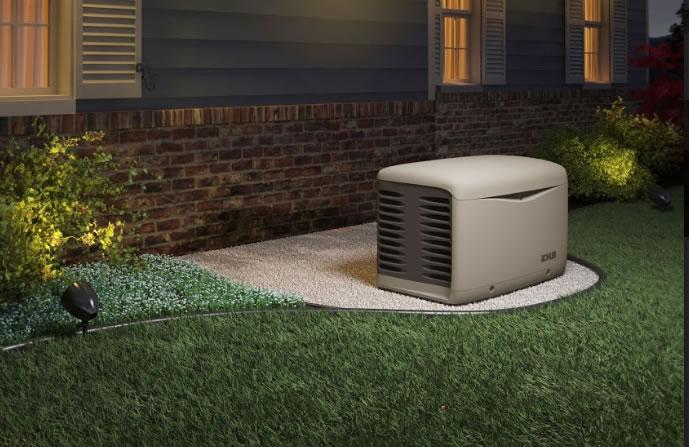Choose the Right Size Generator
July 01, 2024
Home generators are essential for providing backup power during outages, ensuring that essential appliances and systems remain operational. Whether you're dealing with severe weather, power grid issues, or other emergencies, a home generator can offer peace of mind and security. However, choosing the right generator and using it safely requires careful consideration and planning. Here’s a comprehensive guide to help you make informed decisions and maintain safe practices.
Types of Generators
- Portable Generators: These are mobile and can be used for various purposes, including home backup. They typically run on gasoline or propane and are less expensive than standby generators. However, they require manual setup and fueling.
- Standby Generators: These are permanently installed units that automatically turn on during a power outage. They run on natural gas or propane and provide a seamless transition when the power goes out. Standby generators are more expensive but offer higher reliability and convenience.
Home Generator Installation
- Hire a Professional Electrician: Proper installation is critical for the safe and efficient operation of a home generator. Hire a licensed electrician to ensure the installation meets local codes and safety standards. They will handle the electrical connections, grounding, and integration with your home's electrical system.
- Permits and Regulations: Check with local authorities to determine if any permits or inspections are required for generator installation. Compliance with local regulations is essential to avoid fines and ensure safety.
- Choose a Suitable Location: Place the generator in a well-ventilated area outside your home, away from doors, windows, and vents. This placement helps prevent carbon monoxide buildup, which can be deadly. Ensure the location is accessible for maintenance and refueling.
- Transfer Switch: Install a transfer switch to safely connect the generator to your home’s electrical system. This switch prevents backfeeding, which can endanger utility workers and damage the generator.
Safely Using a Home Generator
- Read the Manual: Familiarize yourself with the manufacturer’s instructions and safety guidelines. Understanding how to operate and maintain your generator is crucial for safe use.
- Regular Maintenance: Perform regular maintenance as recommended by the manufacturer. This includes checking oil levels, filters, spark plugs, and fuel lines. Schedule periodic inspections by an electrical repair service like Mr. Electric to ensure the generator remains in good working condition.
- Fuel Safety: Store fuel in approved containers in a well-ventilated area away from living spaces. Never refuel a hot generator, as this can cause fires or explosions. Keep extra fuel on hand but avoid storing large quantities indoors.
- Avoid Overloading: Do not overload the generator by connecting more appliances than it can handle. Overloading can damage the generator and pose a fire risk. Use power management techniques, such as prioritizing essential devices.
- Carbon Monoxide Safety: Carbon monoxide (CO) is a colorless, odorless gas that can be fatal. Install CO detectors in your home, especially near sleeping areas. Never run the generator indoors or in enclosed spaces, including garages and basements.
- Safe Electrical Connections: Use heavy-duty, outdoor-rated extension cords to connect appliances to the generator. Ensure cords are free of damage and have a sufficient capacity for the load. Avoid using the generator in wet conditions to reduce the risk of electrical shock.
Regular maintenance and safe operating practices will keep your generator functioning efficiently and protect your household from potential hazards. In the event of a power outage, a well-chosen and properly used generator can provide the peace of mind and security you need.
